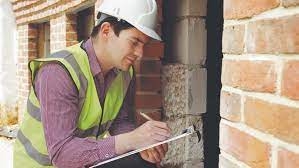?
A proper inspection report must contain an overview of its findings and must indicate which parts of the building were examined and why other areas weren't accessible for examination.
An inspector's job entails reviewing plans, permit applications and construction documents to ensure code compliance. Should they notice any code violations they immediately notify contractors, engineers and property owners accordingly.
It is a professional evaluation of the building’s condition
Building inspections are an indispensable element of the construction process, as they ensure projects comply with local codes and regulations, such as zoning ordinances and setback requirements. They also verify whether designs, materials and construction methods meet safety standards as well as identify any code violations and provide guidance on how best to remedy them.
Inspectors work alongside contractors, architects and engineers to address code-related concerns and prepare and maintain detailed reports and documentation that accurately reflect the status of a project.
Building inspection involves performing numerous tasks, from reviewing appraisals, building plans, citations, certificates of occupancy, construction permits, evacuation plans, environmental studies and fire safety system records to performing surveys and assessments on existing structures such as handrails, stairs and fire safety requirements as well as performing mechanical equipment checks (HVAC systems and water towers) before consulting and communicating with all the appropriate parties on-site. Consultation and communication between stakeholders is also an integral aspect of performing inspections.
It is a legal requirement
Building inspectors are government employees tasked with overseeing construction projects to ensure that they comply with local and national safety standards. Their role involves inspecting land before construction begins, reviewing blueprints and builder work, visiting multiple times throughout a project to evaluate conditions on-site such as thermal insulation levels, fire-safety necessities, staircases etc. Additionally they may be asked to check equipment such as cranes or swimming pools as part of this role.
Building inspectors differ from home inspectors in that they can halt construction projects that do not comply with a particular building code, thus potentially saving lives and property damage from unapproved projects. Building inspectors also enforce local ordinances. Performing such an intricate task requires careful attention to detail and an efficient workflow process; many inspectors use electronic inspection processes which enable them to organize forms, reports and permits while tracking any errors on-site easily.
It is a good investment
An inspection can be an invaluable asset when purchasing a home, both to ensure it's a sound investment and protect against costly structural problems in the future. These could range from electrical issues or rotting woodwork requiring costly repairs. A quality building inspection could save tens of thousands in repairs over time.
Your home inspector will start their assessment by looking over its structure, wiring system and for signs of mold growth. They'll inspect any interior walls for damage or dampness as well as the plumbing and drainage to identify leaks or any potential problems that might exist.
Many building inspectors do not require a bachelor's degree to become building inspectors, though classes on how to properly perform inspections must still be taken. Inspectors tend to receive fair salaries with standard health benefits including vacation and sick leave as well as retirement plans - some can even work from their homes!
It is a peace of mind
An inspection before purchasing property should be a requirement of any prospective buyers, to help prevent costly repairs and provide peace of mind. The process usually takes two hours and includes inspecting electrical, plumbing, heating, and cooling systems as well as major structural defects, safety hazards and minor maintenance issues that might need fixing in a report.
Building inspectors are government employees responsible for upholding local ordinances and codes, shutting down construction projects that don't abide by them, as well as performing visual inspections on both homes and commercial properties. Meanwhile, home inspectors are independent individuals who conduct visual inspections of both properties to detect cracks or rot or detect harmful radon gas levels; furthermore they advise homeowners on what repairs need to be completed as well as finding contractors. Ultimately they save clients thousands in repair costs with their advice regarding repairs needed as well as general maintenance as well as lists of things to avoid!Pre Purchase Building Inspections


